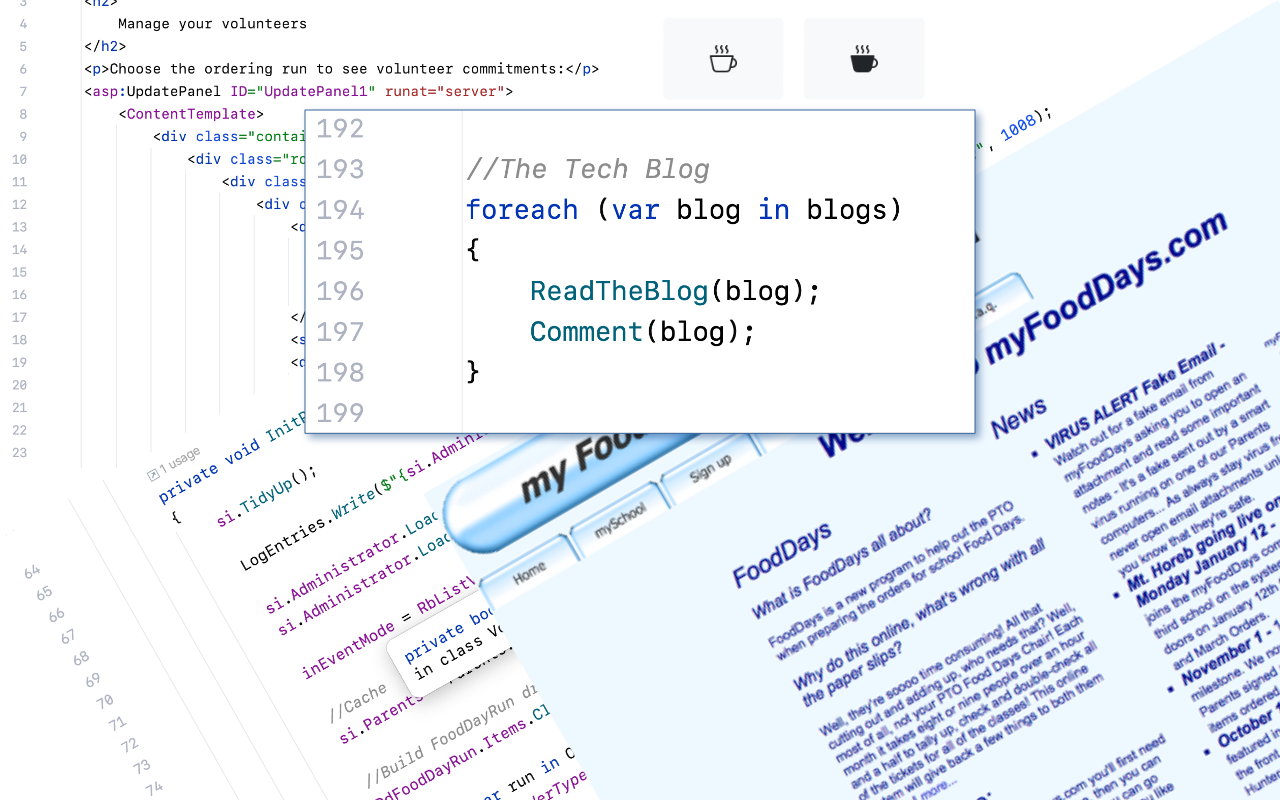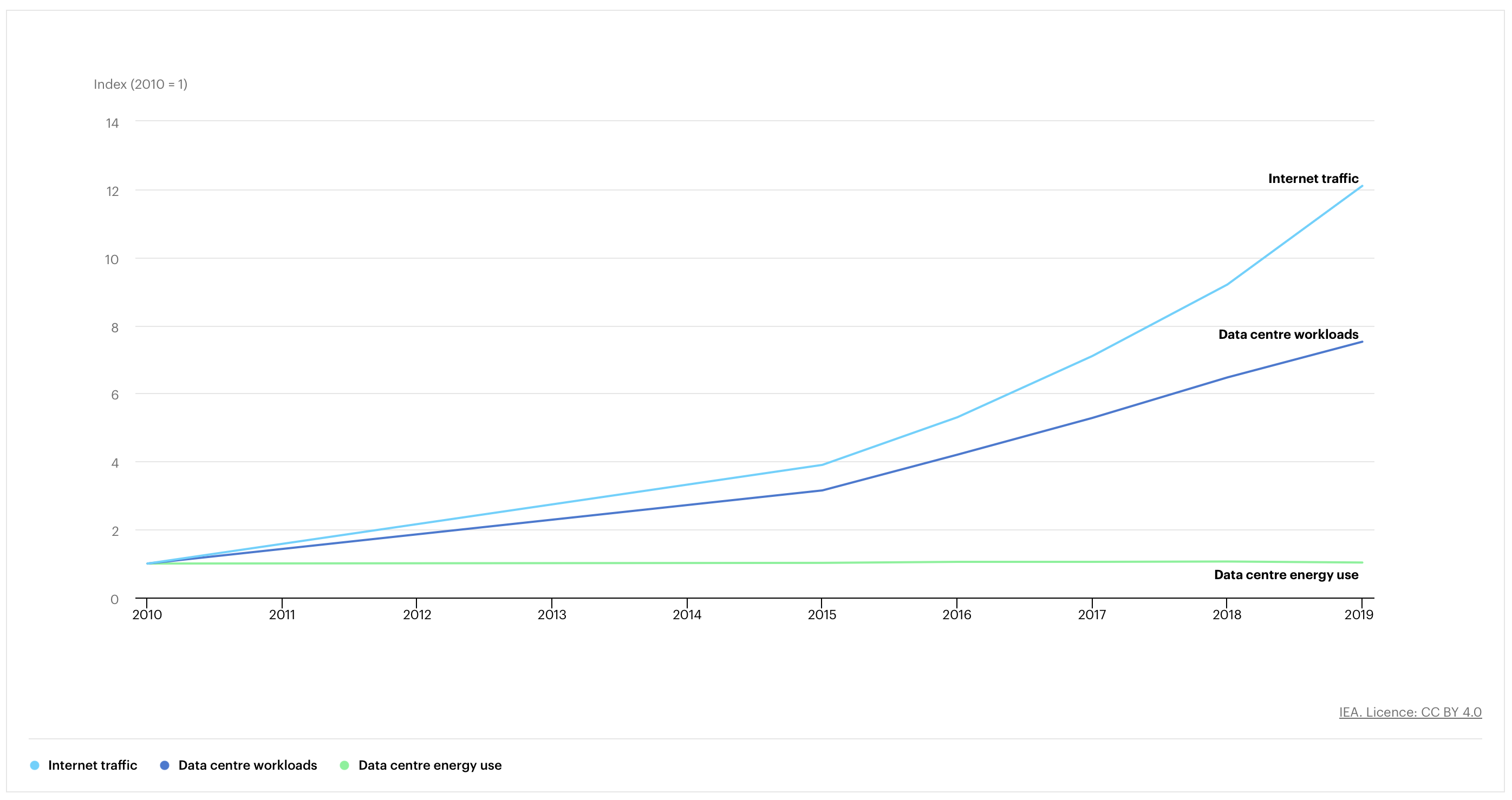
Earth Day: Technology Decision Makers Can Help
"Earth Day: Technology Decision Makers Can Help"
Much is said about the great power consumption of the vast computer data centres that we seem to need to run our lives but, what decisions can we make to change that?
Big tech does get a lot of press for the power that it consumes in its data centres around the world and, for its seemingly unending growth!
What powers the growth is demand, demand from us for ever increasing services - faster internet, more capabilities from our smart speakers, more TV shows to stream, more, more, more.
But are we on an inexorable downward spiral?
No.
There's no arguing that the demand for services is increasing but, the assumption that we might make in a vacuum is that the energy demands are rising in lock step. This does not appear to be true and, it's something that you can influence too – something that we're keen to do at FoodDays.
The International Energy Agency (IEA) studies global energy consumption and has observed some interesting trends. In short, whilst big tech is growing rapidly and consuming vast quantities of energy, it's also looking to put the best spin on that – hey, I'm a skeptic, especially when I see large organisations looking to give themselves a nice green wash!
" I wonder, how much energy and resources did we expend creating, cloning & shipping CD, VHS and DVD media before streaming? "
The tech sector consumes a great deal of energy but, it's also one of the fastest growing consumers of green energy.

IEA, Global trends in internet traffic, data centre workloads and data centre energy use, 2010-2019, IEA, Paris https://www.iea.org/data-and-statistics/charts/global-trends-in-internet-traffic-data-centre-workloads-and-data-centre-energy-use-2010-2019, IEA. Licence: CC BY 4.0
Whilst the growth in services is high, power consumption remains static. Why? Efficiency.
What can we do to affect a change at home?
As technology consumers we can make discussions about the technology that we purchase and the services that we use, further, as businesses we can, in some cases reduce our compute needs.
At home, the technology and the computers that we use have changed. They have become more power efficient for example, I'm writing this article on a MacBook Pro, it's more powerful than the sum of all of the computers I've ever owned before but, where power is concerned, it's the opposite. Previously, my desktop computers used around 400W or more per month – that's about 300kWh of electricity a month, or about $45/month. Today, my laptop is currently plugged into a high-efficiency USB wall outlet, yes, what would just power a mouse and keyboard before is now powering and charging my whole computer. At about 5W of power, that's about 3.7kWh per month or certainly less than 60 cents.
The story is also true of iPads, tablets and phones that use even less however, there are also Windows gaming laptops and desktops that still use the same amount of power as they always did, albeit with the same massive increase in performance though!
At home, considering the types of computing equipment that you use can have a significant impact on the energy impact of your home, especially your work computer and even more so if you're a work-from-home kind of person – it's you paying the bill!
How do we affect a change in business?
Traditional business would often comprise a group of office computers connected to a bigger computer server in the closet or even server room. Such solutions, even in small companies, could call for extra power and cooling to be brought in and at the very least, they all call for 24/7/365 operation... no one turns the server off at night!
Moving the office workload to the cloud can have a dramatic effect on office energy consumption and, also office life – that chilled noisy server room can become the quiet meditation room... Who am I kidding? But still, it's no longer a computer room with power hungry servers, disks and chillers.
Cloud providers share resources, they typically look for the cheapest sources of both power and cooling (usually renewables) and you can bet that they squeeze every last ounce of compute power from their systems.
At FoodDays we made the decision to switch our compute systems from one that typically required multiple servers to be running 24/7 to a solution that only uses power at the precise moment that a parent logs in or adds an order or makes a payment, etc. which, over the span of a month means that we use less than an hour of total compute time - yes, computers are so fast that they can complete the work for thousands of customers each month in-between long sleeps. This coupled with using the latest hardware based on more power efficient ARM processors, our footprint is dramatically reduced.

For more information, read 5 ways Big Tech could have big impacts on clean energy transitions.

 Michael Thwaite
Michael Thwaite


